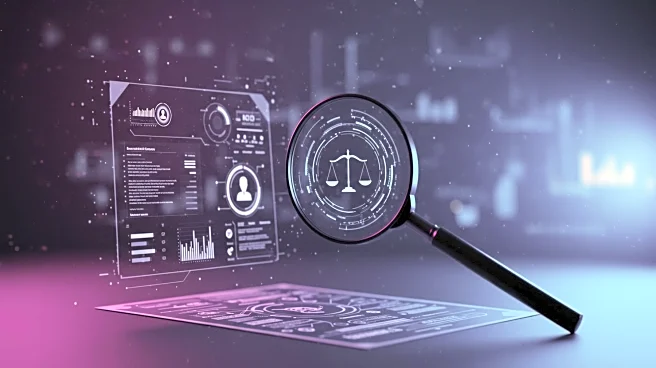What's Happening?
Everlaw has launched a new tool called Deep Dive, designed to streamline the process of front-end loading in legal cases. This tool, an enhancement of the previously known Project Query, was announced in open beta at the ILTA conference. It allows users to query large datasets of documents using natural language, providing answers supported by a list of facts and referenceable documents. The tool is particularly useful for legal professionals in preparing for depositions and assessing case exposure early on without significant time and cost investments. Everlaw's founder, AJ Shankar, demonstrated the tool's capabilities, emphasizing its ability to provide relevant document-based answers or indicate when no supporting documents are available.
Why It's Important?
The introduction of Everlaw's Deep Dive tool represents a significant advancement in legal technology, offering potential cost and time savings for law firms. By enabling legal professionals to efficiently access and analyze relevant documents, the tool can enhance case strategy and preparation. This development is particularly beneficial for case leads and strategists who require a comprehensive understanding of the case and client. The tool's ability to identify documents supporting or refuting allegations can lead to more informed legal strategies, potentially improving outcomes for clients. As legal technology continues to evolve, tools like Deep Dive could reshape how legal professionals approach case preparation and document review.
What's Next?
As Everlaw's Deep Dive tool enters open beta, legal professionals and firms are likely to explore its capabilities and integrate it into their workflows. The tool's effectiveness in real-world applications will be closely monitored, and feedback from users may lead to further enhancements. Additionally, the legal industry may see increased competition as other technology providers develop similar tools to meet the growing demand for efficient legal document analysis. The success of Deep Dive could also influence how law firms allocate resources for case preparation, potentially shifting the focus towards more technology-driven solutions.









